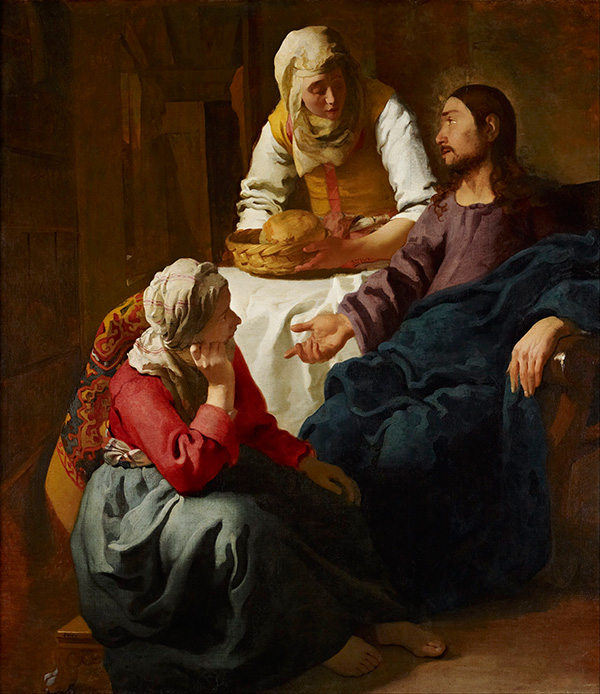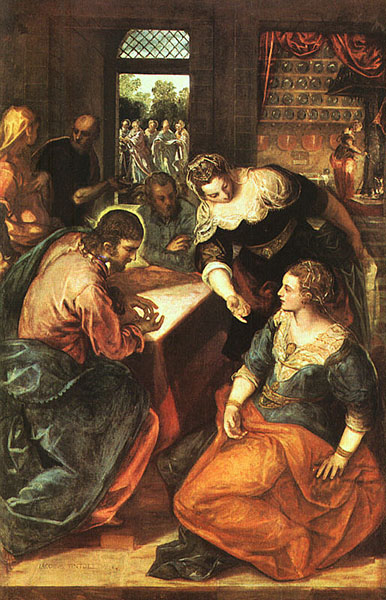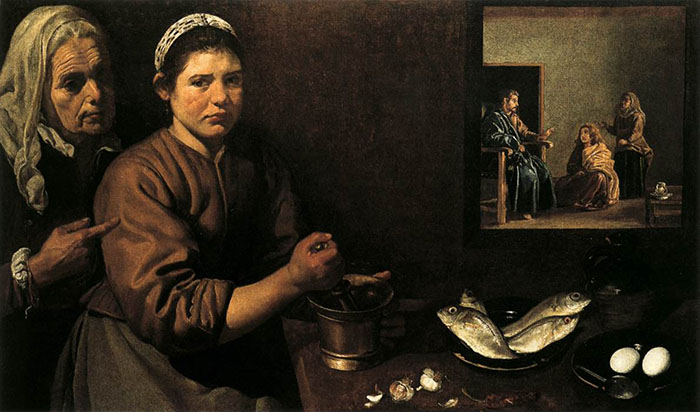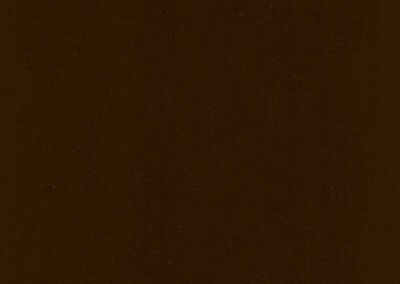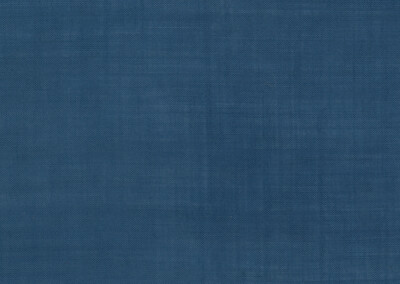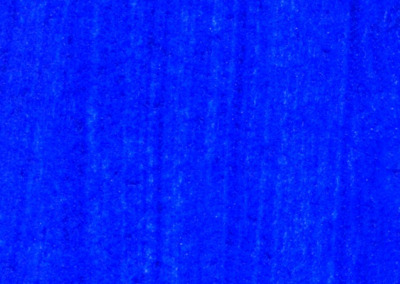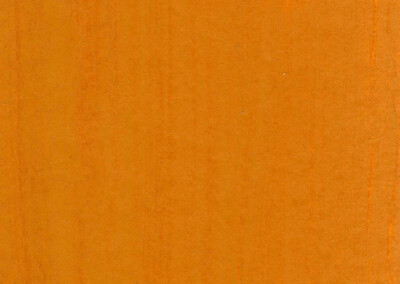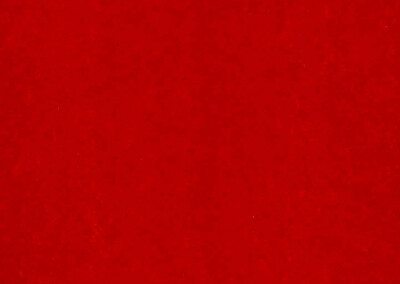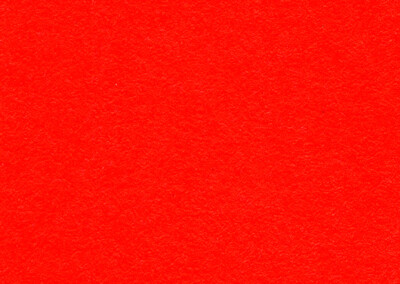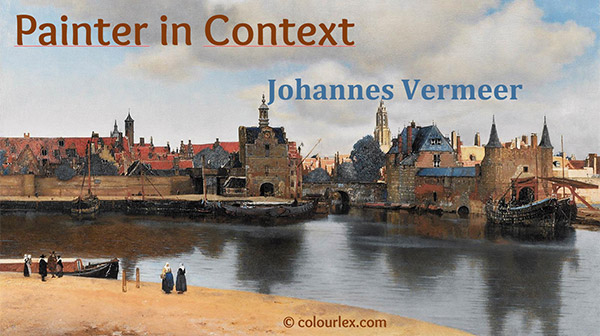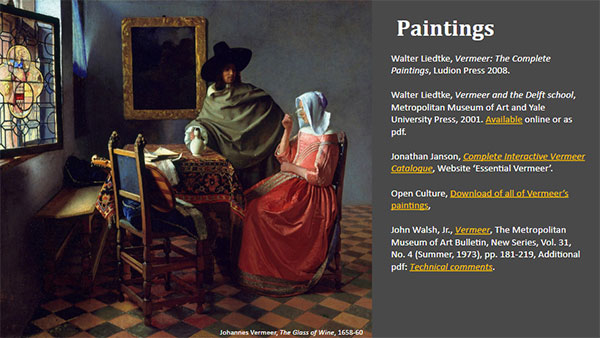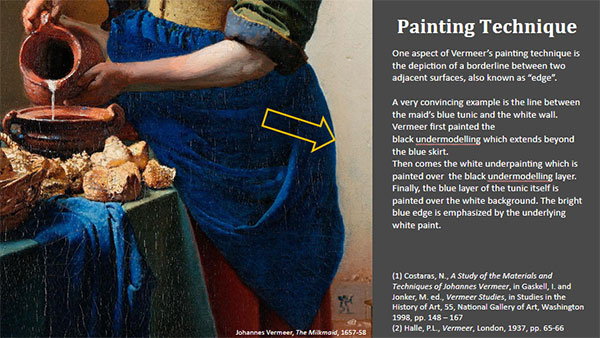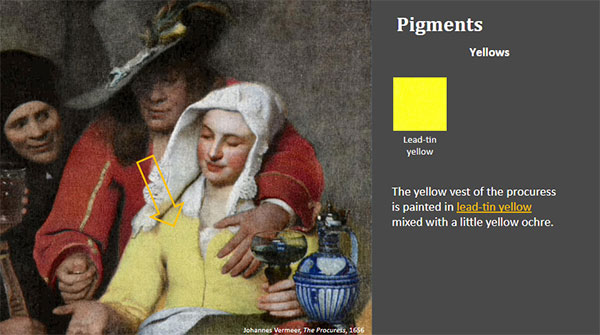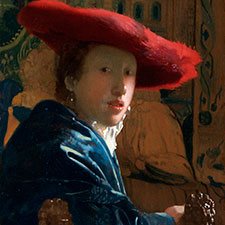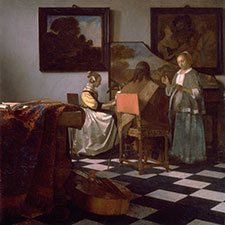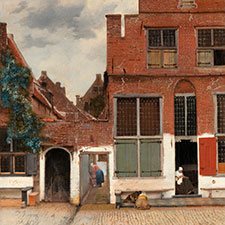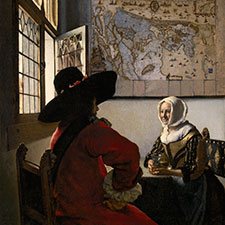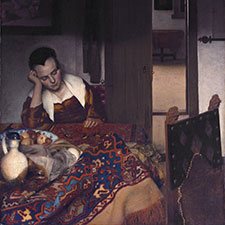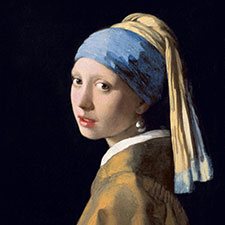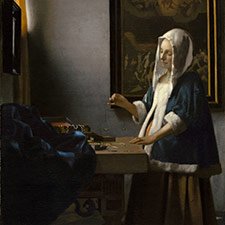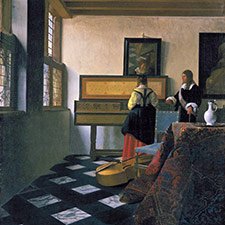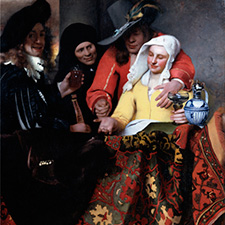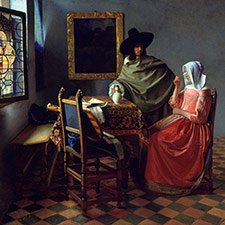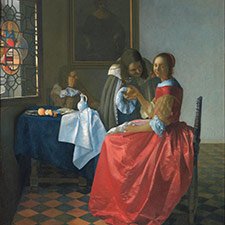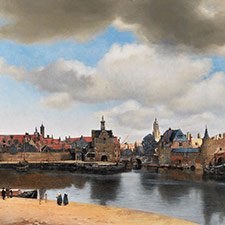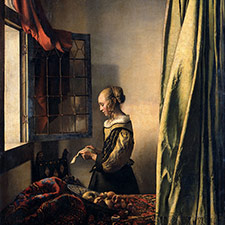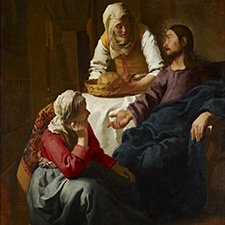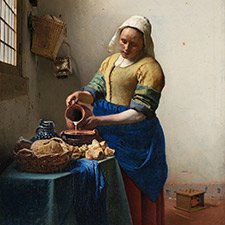Johannes Vermeer, Christ in the House of Martha and Mary
1654-55Johannes Vermeer, Christ in the House of Martha and Mary
1654-55Paintings sorted by Historical period | Painter | Subject matter | Pigments used
Overview
Medium: Oil
Support: Canvas
Size: 158.50 x 141.50 cm
Art period: Baroque
Scottish National Gallery Edinburgh
NG 1670
Christ in the House of Martha and Mary is the largest of Vermeer’s paintings showing a visit of Jesus to the household of the two sisters. This is the only one of Vermeer’s paintings with an overtly religious motive. It has been suggested that the two different outlooks on life of the two sisters represent the two possible paths to salvation: Mary with her contemplative nature not seeing the necessity of helping her sister with the preparation of food stands for the salvation by faith only, whereas Martha taking an active role in life stands for the salvation by good works in life (1).
(1) Janson, J, Christ in the House of Martha and Mary, Essential Vermeer, website
Text in the Bible
Luke 10:38-42 New International Version (NIV)
At the Home of Martha and Mary
38 As Jesus and his disciples were on their way, he came to a village where a woman named Martha opened her home to him. 39 She had a sister called Mary, who sat at the Lord’s feet listening to what he said. 40 But Martha was distracted by all the preparations that had to be made. She came to him and asked, “Lord, don’t you care that my sister has left me to do the work by myself? Tell her to help me!”
41 “Martha, Martha,” the Lord answered, “you are worried and upset about many things, 42 but few things are needed—or indeed only one. Mary has chosen what is better, and it will not be taken away from her.”
Pigments
Pigment Analysis
This pigment analysis is based on the work of Hermann Kühn of Doerner Institute in Munich (1).
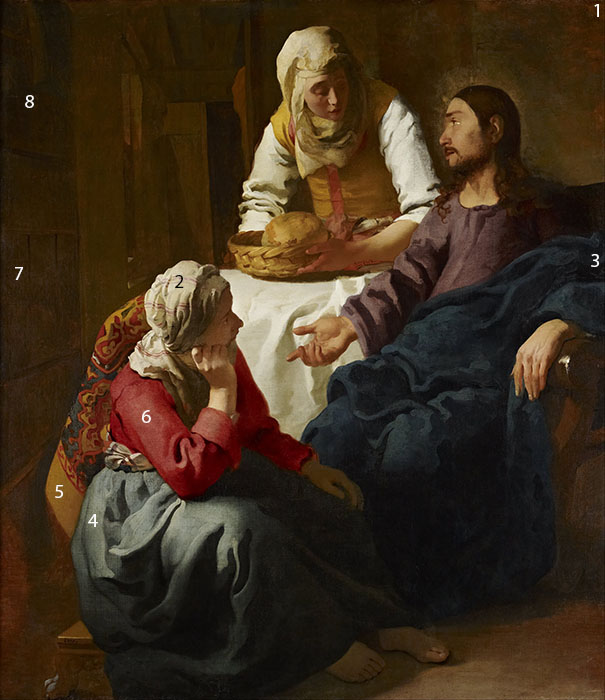
1 White ground from the upper right corner: chalk
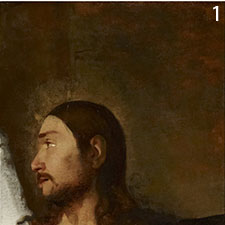
2 White paint from the headcloth of Mary: lead white
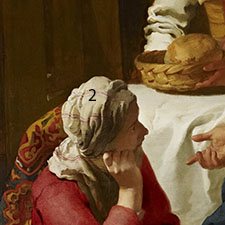
3 Blue paint from the coat of Christ: smalt, indigo and lead white
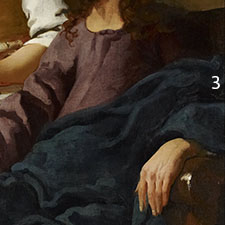
4 Pale green skirt of Mary: lead white, yellow ochre, and indigo
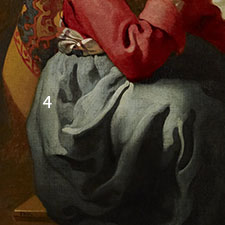
5 Yellow tablecloth: lead white, yellow ochre
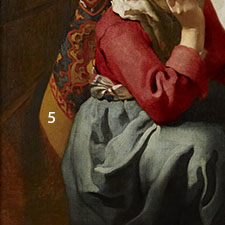
6 Red blouse of Mary: madder lake, (yellow ochre and vermilion)
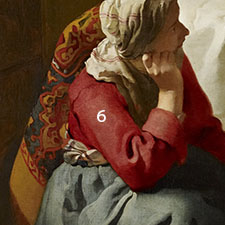
7 Light brown background: lead white and umber (smalt)
8 Dark brown background: umber (smalt and lead white)
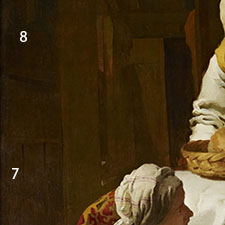
References
(1) Kuhn, H. A Study of the Pigments and Grounds Used by Jan Vermeer. Reports and Studies in the History of Art, 1968, 154–202.
Pigments Used in This Painting
Resources
See the collection of online and offline resources such as books, articles, videos, and websites on Johannes Vermeer in the section ‘Resources on Painters‘
PowerPoint Presentations
Painter in Context: Johannes Vermeer
A richly illustrated presentation on the painting technique and pigments employed by Johannes Vermeer specially crafted for Art Education. (Number of Slides = 24)
- Each presentation starts with the basic resources on the painter such as his biography, main catalogs of his paintings, and a bibliography.
- Next, you find slides describing the painting technique of the artist and the pigments he usually employed in his work.
- The majority of the slides show examples of paintings containing the specific pigments.
Slides showing the basic resources on the paintings of the Dutch Baroque painter Johannes Vermeer.
The painting technique of Johannes Vermeer is described and illustrated in the next slides.
The majority of the slides show important examples of paintings where Vermeer employed specific pigments. The slides are organized according to the color of the pigments.
Videos
Video: 'Christ in the House of Martha and Mary' by Johannes Vermeer' by National Gallery of Scotland
Publications and Websites
Publications
(1) Gaskell, I. and Jonker, M., Vermeer Studies, in Studies in the History of Art, 55, National Gallery of Art, Washington 1998.
Websites
Janson, J, Christ in the House of Martha and Mary, Essential Vermeer, website

